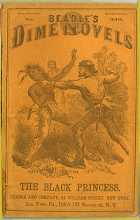Turning Down Work
It turned out she was just as difficult to understand on the phone, and immediately I knew this was a job I didn’t want to take. The most critical factor in writing for private clients is being able to communicate effectively. If you can’t understand what your client is saying, chances are very good you will disappoint them with your writing by not providing what they want. That they don’t know what they want either will make little difference in the end, so sometimes it is a good idea to turn down a job.
Even though I need the income, I just knew this particular client was going to cost more in time and frustration than they would be worth. Instead, I can choose to spend that time trying to generate more leads for clients who will be easier to work with. It’s a nice goal to want to help everyone who needs it, but it is more practical to realize when something will not work out.
So if you are talking with a potential client and having trouble understanding what they want, or if you just have a bad feeling about a project, it is usually better to listen to your instincts and move on. As long as you work hard at marketing, provide excellent quality and don’t be too picky about new projects, you should be able to easily replace the income from a job you turn down.









